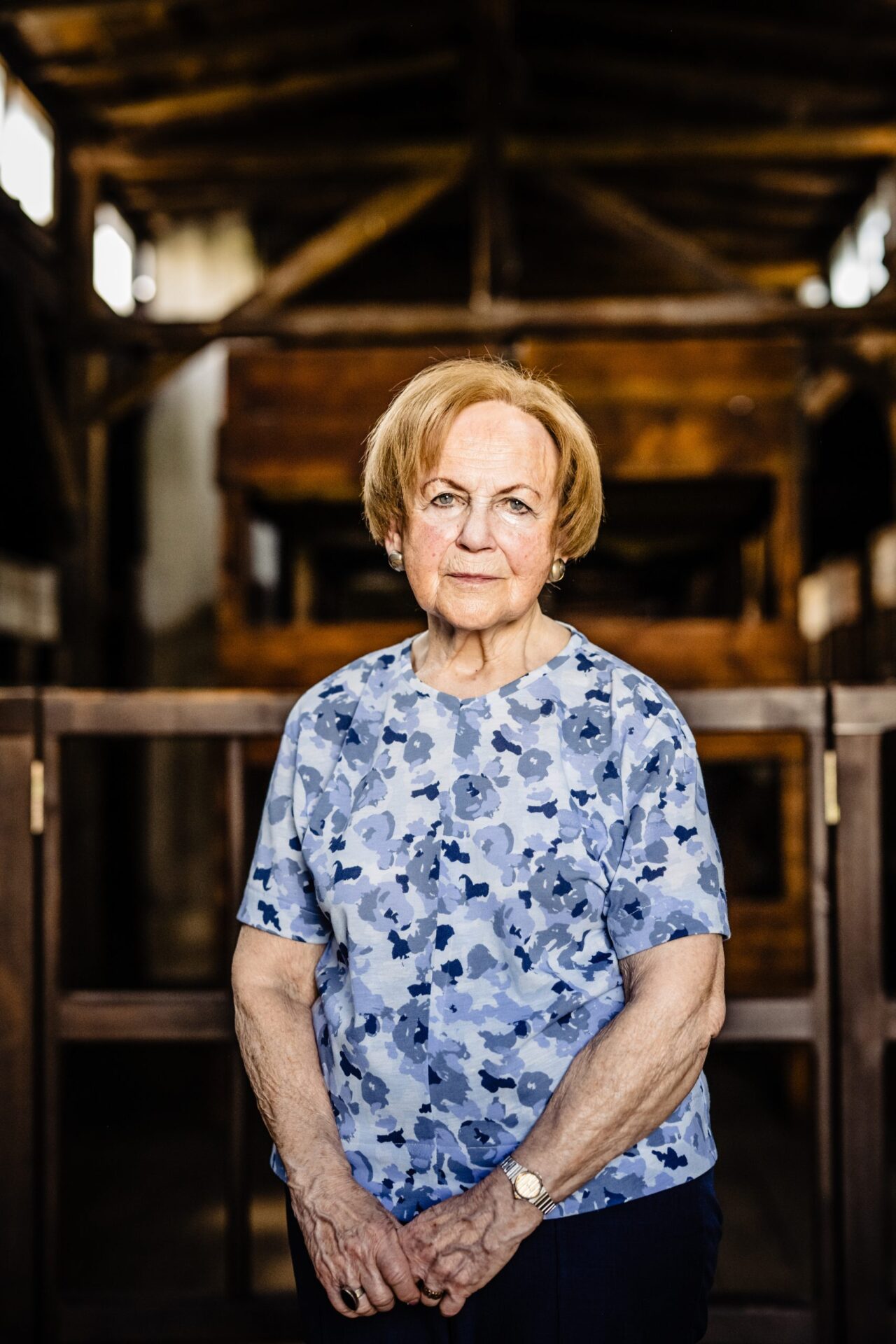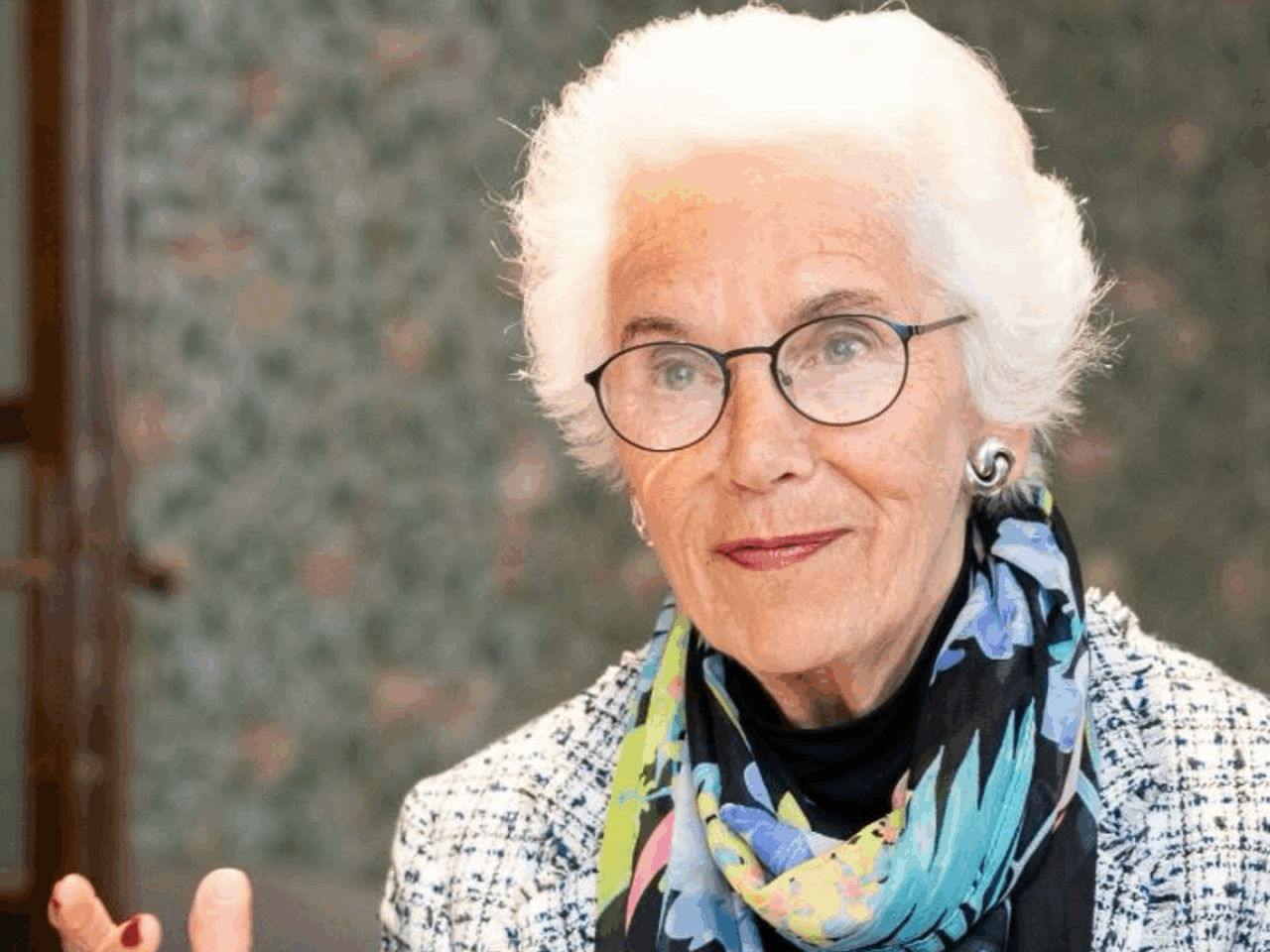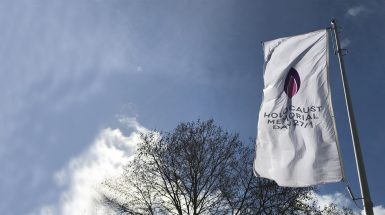
Mala Tribich MBE
Mala Tribich MBE was born Mala Helfgott in 1930 in Piotrkow, Poland. She was the second of three children with an older brother Ben, and a younger sister Lusia. Her early childhood was lost to the Nazi invasion of Poland in 1939. Mala and her family were forced into the Piotrkow Trybunalski ghetto – the first Nazi ghetto established in Poland. Life there was marked by overcrowding, severe malnutrition and the constant fear of deportation.
Lead image credit: Blake Ezra Photography
Talking about my experiences during the Holocaust, I aim to help create more understanding, tolerance, and humanity.
Rumours began to spread about deportations of Jews from the ghetto to Treblinka, a death camp where people were murdered on arrival. In a desperate attempt to protect their children from this harsh reality, Mala’s parents, alongside her aunt Dora and uncle Joseph, Idzia’s parents, arranged for her and her cousin Idzia to leave the ghetto and paid for them to stay in Chestochowa with a Polish family posing as Christian relatives from Warsaw. Living with the ever present risk of discovery, the girls felt vulnerable, always on edge, and having to think on their feet when asked who they were.
As Idzia was an only child, she found it difficult to cope without her family and eventually asked to return to the ghetto. She was told that the deportations are still happening and it is not safe to return. She replied that her parents have very good friends who are hiding their valuables, they will take her in. So they set off to Piotrkow to these good friends, collected a suitcase of valuables and left. When Mala eventually returned to the Ghetto she learned that Idzia never made it back to her parents. In fact, Idzia was never seen again. The circumstances of her disappearance remain unknown to this day.
While living in the Piotrkow Trybunalski ghetto, Mala evaded several round-ups during which many local Jews were either deported to death camps or executed in nearby forests. In 1942 tragedy struck her own family. Her mother, Sarah, and eight year-old sister Lusia, were taken from the ghetto along with Hundreds of others. They were led to the Rakow Forest, just outside the town, where they were brutally murdered. Around the same time, one of Mala’s uncles, Fishel was shot, and his wife, Irene, was deported. As her aunt was being taken towards the deporation line, she was screaming ‘who will look after my child’. Left behind was their five-year-old daughter, Ann. Despite being barely more than a child herself, at 12 years-old Mala assumed responsibility for her young cousin as she was the last surviving female member of the family.
When the ghetto was liquidated in 1944, she was separated from her father, Moishe, and brother Ben and deported with Ann to Ravensbrück concentration camp. After ten weeks, they were transferred in cattle trucks to Bergen-Belsen, where conditions were horrific. Image credit: Blake Ezra Photography ‘Talking about my experiences during the Holocaust, I aim to help create more understanding, tolerance, and humanity.’ Mala contracted typhus and was gravely ill when British forces liberated the camp on 15 April 1945.
‘When we arrived in Bergen-Belsen that was the ultimate, it was horrendous, beyond human endurance. The first thing that hit you was the smell and smog. There were skeletons shuffling along aimlessly in a daze and as they shuffled, they would collapse and die. There were dead bodies everywhere and piles of naked twisted decaying corpses,’ Mala recalls.
After liberation, Mala spent several weeks recovering in a hospital and a children’s home. She was later sent to Sweden, where she remained for nearly two years, slowly beginning the process of rebuilding her life. In 1947, she received a letter from her brother Ben – the only other member of her immediate family to survive. He was living in England. In March of that year, Mala joined him, and the siblings were finally reunited after years of separation and unimaginable loss.
In England, she met Maurice Tribich, a British Jewish architect and war veteran. They married in 1950 and went on to raise two children together. For many years, Mala found it too painful to speak about her experiences. But in the 1980s, as awareness of Holocaust education and remembrance grew, she began to share her testimony publicly. Since then, she has spoken to tens of thousands of students across the UK and has participated in Holocaust Memorial Day events nationwide, addressing audiences in schools, government departments, community centres, and workplaces.
Talking about my experiences during the Holocaust, I aim to help create more understanding, tolerance, and humanity. By speaking out, it is my greatest hope that something positive will be handed to the future generation. In recognition of her extraordinary contribution to Holocaust education, Mala was appointed Member of the Order of the British Empire (MBE) in 2012. More recently, in 2024, she was honoured with the Bridge Award by the Council of Christians and Jews, acknowledging her vital role in fostering interfaith understanding and dialogue.
In recognition of her extraordinary contribution to Holocaust education, Mala was appointed Member of the Order of the British Empire (MBE) in 2012. More recently, in 2024, she was honoured with the Bridge Award by the Council of Christians and Jews, acknowledging her vital role in fostering interfaith understanding and dialogue


